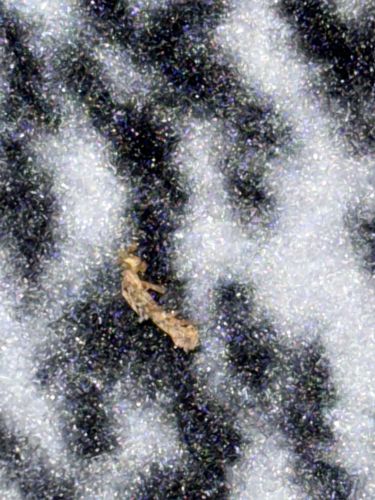Household Casebearer Moth
Scientific Name: Phereoeca uterella
Order & Family: Lepidoptera, Tineidae
Size: Larval case: 10-15 mm long. Adult moth: wingspan of 10-14 mm.

Natural Habitat
Found indoors in homes, particularly in damp and undisturbed areas like closets, attics, basements, and behind furniture. They are often associated with rugs, carpets, upholstery, and stored clothing.
Diet & Feeding
Larvae feed on natural fibers like wool, silk, keratin, lint, hair, and sometimes synthetic fibers if mixed with natural ones. They are also known to consume spiderwebs and insect remains. Adults do not feed.
Behavior Patterns
Case-bearing larvae carry around a protective case made of silk and debris. They are typically slow-moving. Adults are winged, but some species of females are wingless or have reduced wings. They undergo complete metamorphosis.
Risks & Benefits
Potential risks include damage to textiles, clothing, carpets, and other natural fiber items in homes. They are considered a minor household pest. No known benefits.
Identified on: 9/5/2025